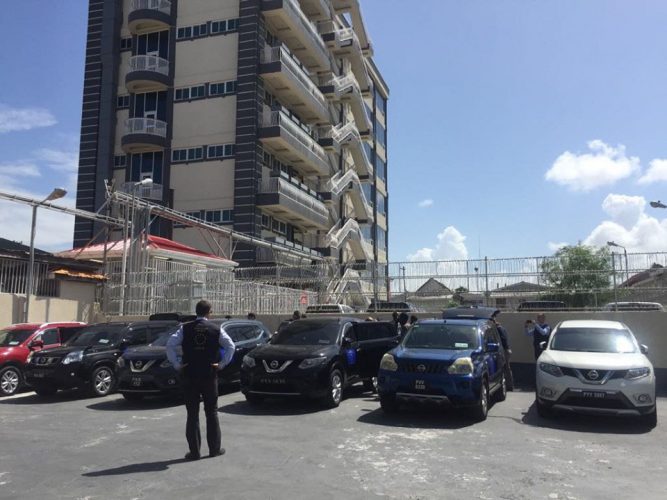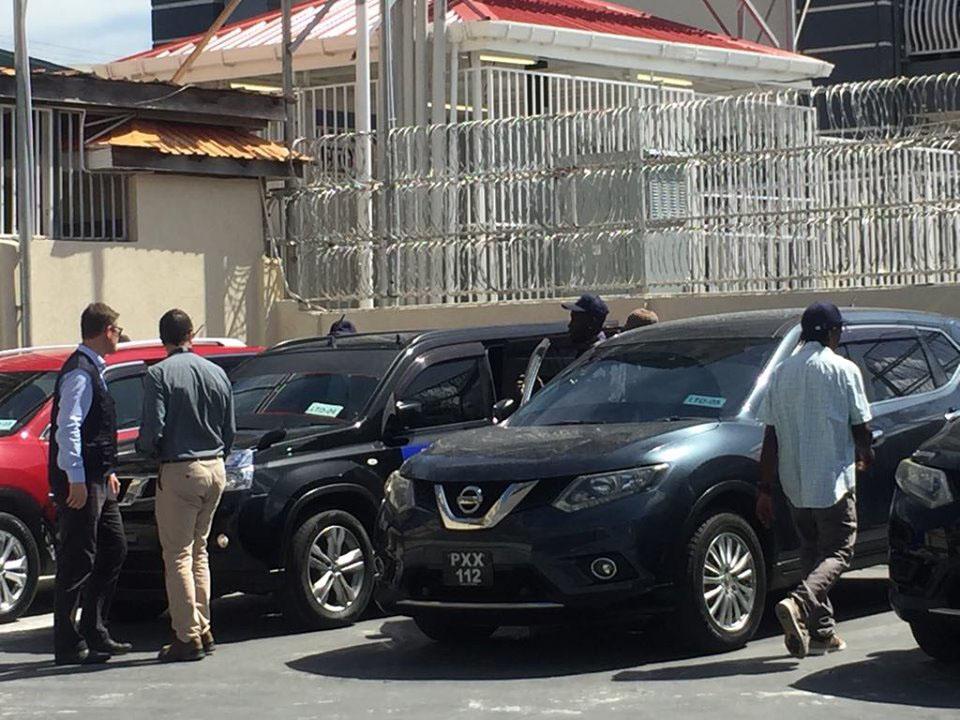Fourteen long-term observers from the European Union (EU) election observation mission were yesterday deployed to the various regions across the country ahead of the March 2nd general and regional elections.
They will work in teams of two. Three of the teams will, however, work in two regions in an effort to cover all ten regions.
A decision was made by the EU Delegation to Guyana to deploy an election observation mission based on an invitation by President David Granger.

Chief Observer of the mission is Member of the European Parliament Urmas Paet, who is due to officially launch the observation mission tomorrow at a press conference that will be held at the Marriott Hotel. Deputy Chief Observer Alexander Matus yesterday told the media during a brief engagement that the long-term observers will be deployed for six weeks across the country. Their task, he said, is to observe the electoral preparations and campaigns. They will also be visiting polling stations. “…All 14 long-term observers are very experienced. They come from 13 different EU member states and Norway. In the last three days, they received an extensive training about the electoral, political, legal, media, security and logistics aspects of their work in the field,” Matus stated. As the date approaches, Matus explained that twenty short-term observers will also be deployed before, during and after elections day.
“…We might also be joined by some diplomats who are credited to the diplomatic missions to Guyana and they might observe in their capacity as locally recruited short-term observers,” he added.
The observers will be monitored by a core team, which will be based on Georgetown, Matus said.
When questioned about what the observers will be looking for during their mission, Matus said that the teams are required to report regularly to the core team in Georgetown who will provide an assessment of the elections.
Matus said that the mission will not be reporting to GECOM. “…So we are not reporting to GECOM. We are reporting internally within the mission and we will make our findings in due course presented to the public. So we don’t report to GECOM,” he noted.
Matus explained that the observers are deemed “eyes and ears” of the missions in the elections observation terminology.
“…They are deployed to the field, they are meeting the variety of interlocutors, they are periodically reporting to the core team here in Georgetown and based on their observation and their regular reporting, we will be able to make an informed assessment of the electoral process in Guyana,” he explained.
Meanwhile, long-term observer Nicholas Koukoullis said that during the process, the mission will be meeting with the election administration and key stakeholders. “During these thirty days that we will be deployed in the field, we will try to have a very global image of the preparations of the actual Election Day and the post electoral developments that will be observed in the country,” he said.




